Left: The Edible Schoolyard, Miriam P. Brenner Children’s Museum, downtown Greensboro, NC. Here, children and families stroll the looping pathway, learn about urban permaculture, make friends with chickens (red coop), explore multicultural fruit and vegetable gardening, prepare harvested produce, eat, and enjoy community building.
Since 2000, NLI’s mission brings landscape design thinking and community engagement to underserved communities in North Carolina and beyond. Naturalized demonstration sites exemplify evidence-based best practices for place-making in daily life, where physical diversity supports equity.
NLI was launched by Professor Robin Moore and Research Professor Nilda Cosco, PhD, at NC State University’s, College of Design, January 2000.
Engaging children with nature, beginning in infancy, promotes healthy human development through caring for nature and each other across the lifespan.
Global treaties, policies, and action plans frame dedication to the human right to a sustainable, ecologically viable, “one health,” local-to-global environment.
Intersections of built environments and public health in ecologically barren communities support regeneration of healthy places, where social life and human wellbeing can flourish.
Ecological concepts – diversity, interrelationships, change, and adaptation – inform temporal scales of design thinking, including climate change adaptation.
Environment-Behavior constructs – affordance, behavior setting, and spatial range – unite research and design thinking with units of analysis across built-environment contexts and pre-post studies.
Nature-based solutions integrate experiential learning with nature in places used by people, including childcare facilities, schools, parks, greenways and streets, residential neighborhoods, community centers, public libraries, museums, botanical gardens, and zoos.
NLI’s theory of change applies evidence-based design thinking to everyday naturalized places that impact human development (aka biophilic design). Applied research feeds knowledge creation and its translation into design education and design practitioner teams.
Collaborating with local, state, national, and international strategic partners supports evidence-informed policy and program resources for healthy community development.
Participatory design programming integrates user needs, community objectives, and cultural expression in built forms that include diverse, intergenerational populations.
Research, design programming, and impact assessment tools include community surveys, environment-behavior mapping, mental mapping, user-taken photos, interviews, and focus groups – all citizen-science friendly
NLI’s web-based knowledge hub serves researchers, educators, practitioners, policy makers, and activists across disciplines and sectors with scientific articles, research briefs, policy reviews, best-practice guides, literature, and YouTube media.
Demonstration sites activate research, evaluation, documentation, and training functions, using empirical and visual evidence to deliver cross-sector, collective impact in child and family systems.
Professional development programs deliver transdisciplinary content to diverse professions, including landscape architecture/design, architecture, urban planning/design, public health, parks and recreation, and early childhood, K-12 and higher education.
“Think & Do,” NC State’s motto, empowers synergy between students, interdisciplinary partners, and community-based institutions.
NLI received the 2023 EDRA Organization Award (Environmental Design Research Association), recognizing NLI’s contribution to creating environments responsive to human needs.
NLI Activity Areas deliver design assistance, research, evaluation, professional development, information dissemination, and communications. Comprehensive projects combine all areas in multiyear programs.
Twenty five years of evolution as a university-based enterprise has scaled-up NLI’s delivery of cross-sector, transdisciplinary knowledge, evidence-based models, and expertise to multiple audiences to increase impact on urban/rural environmental policies.
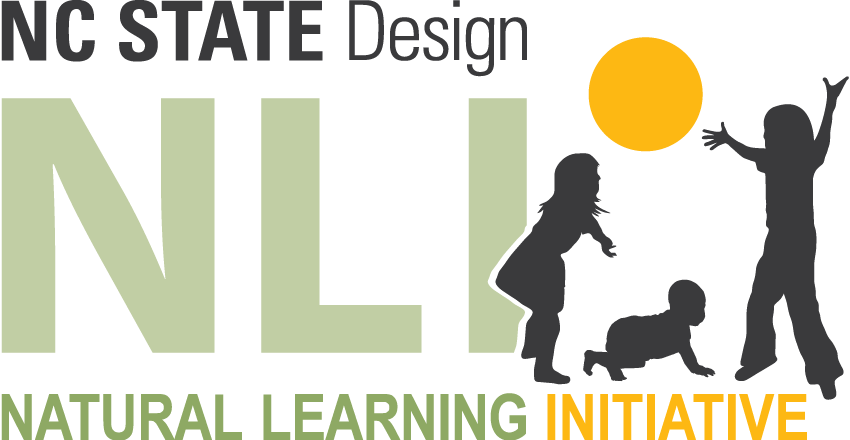
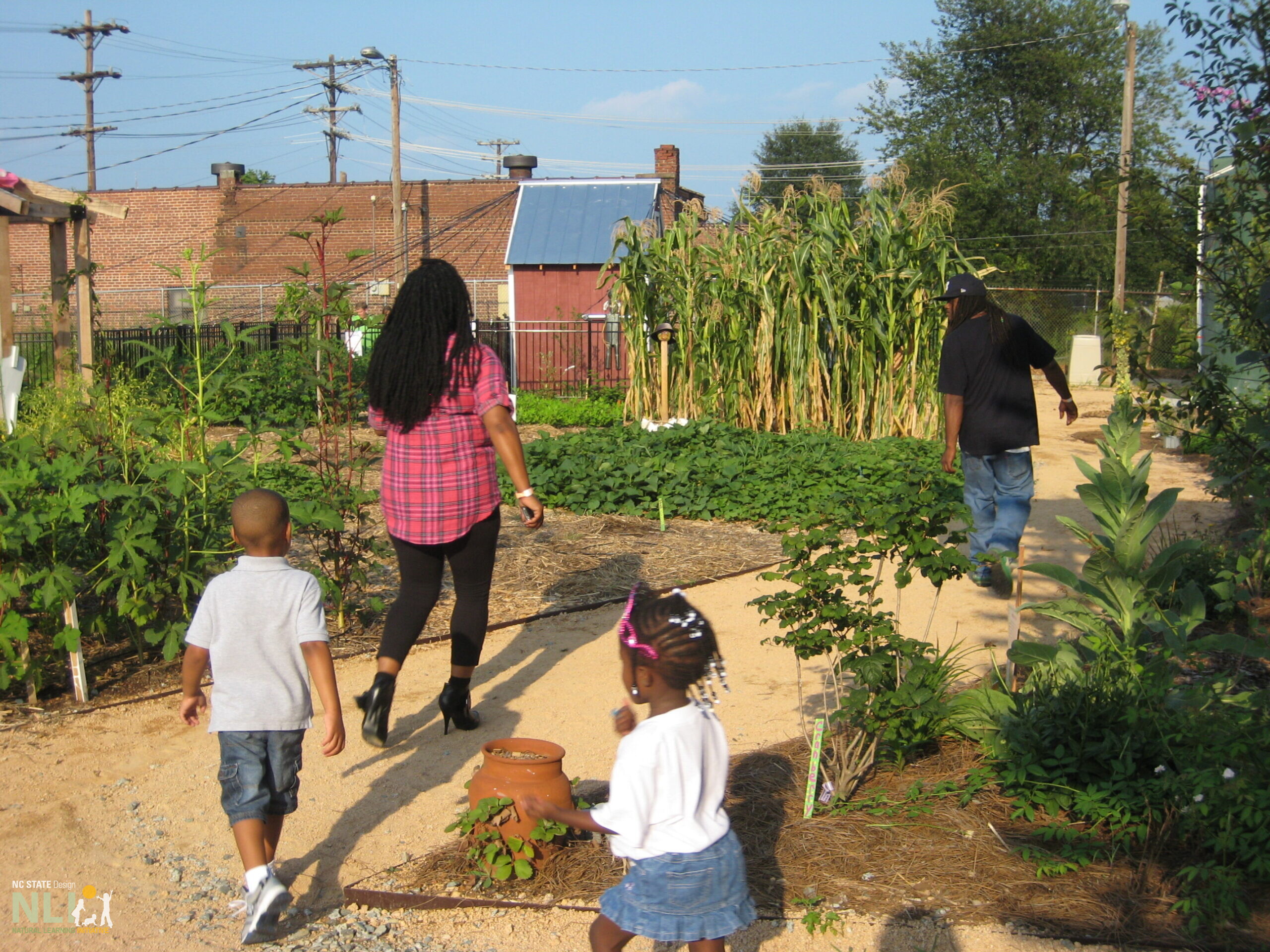
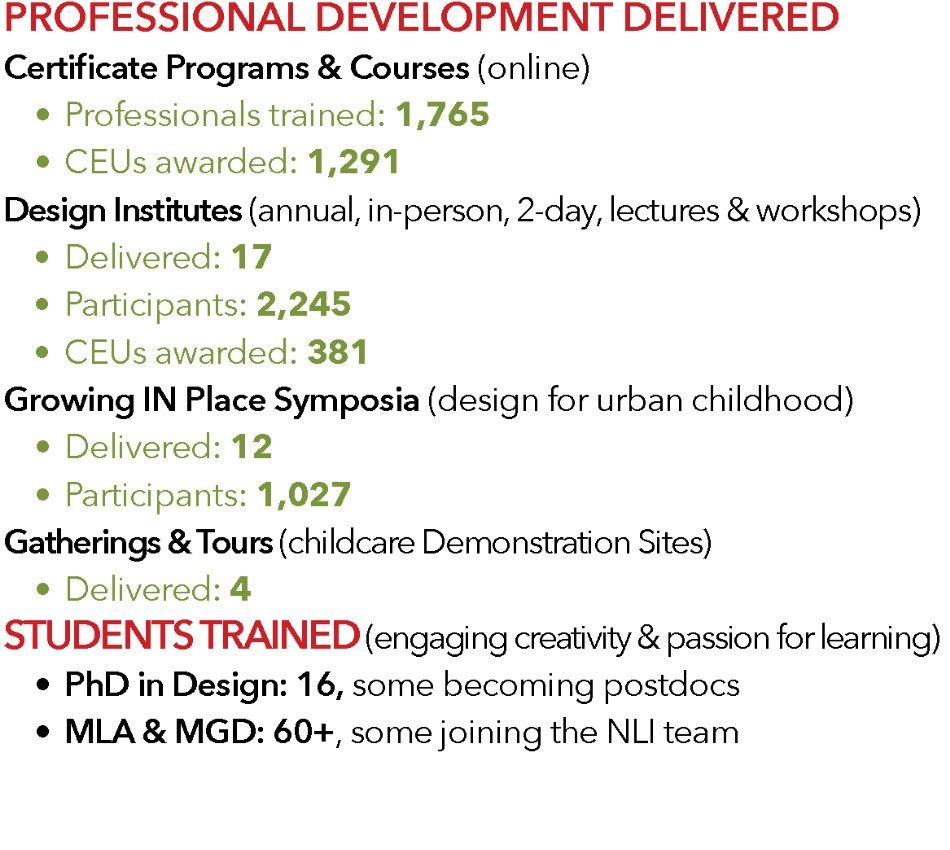
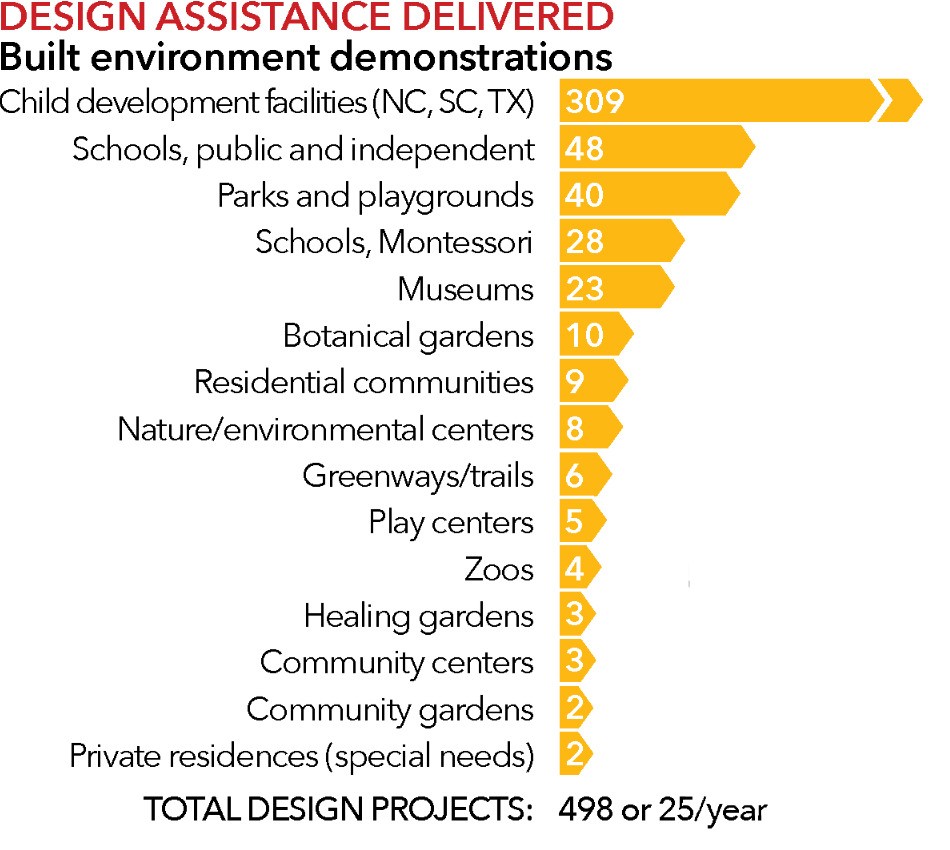
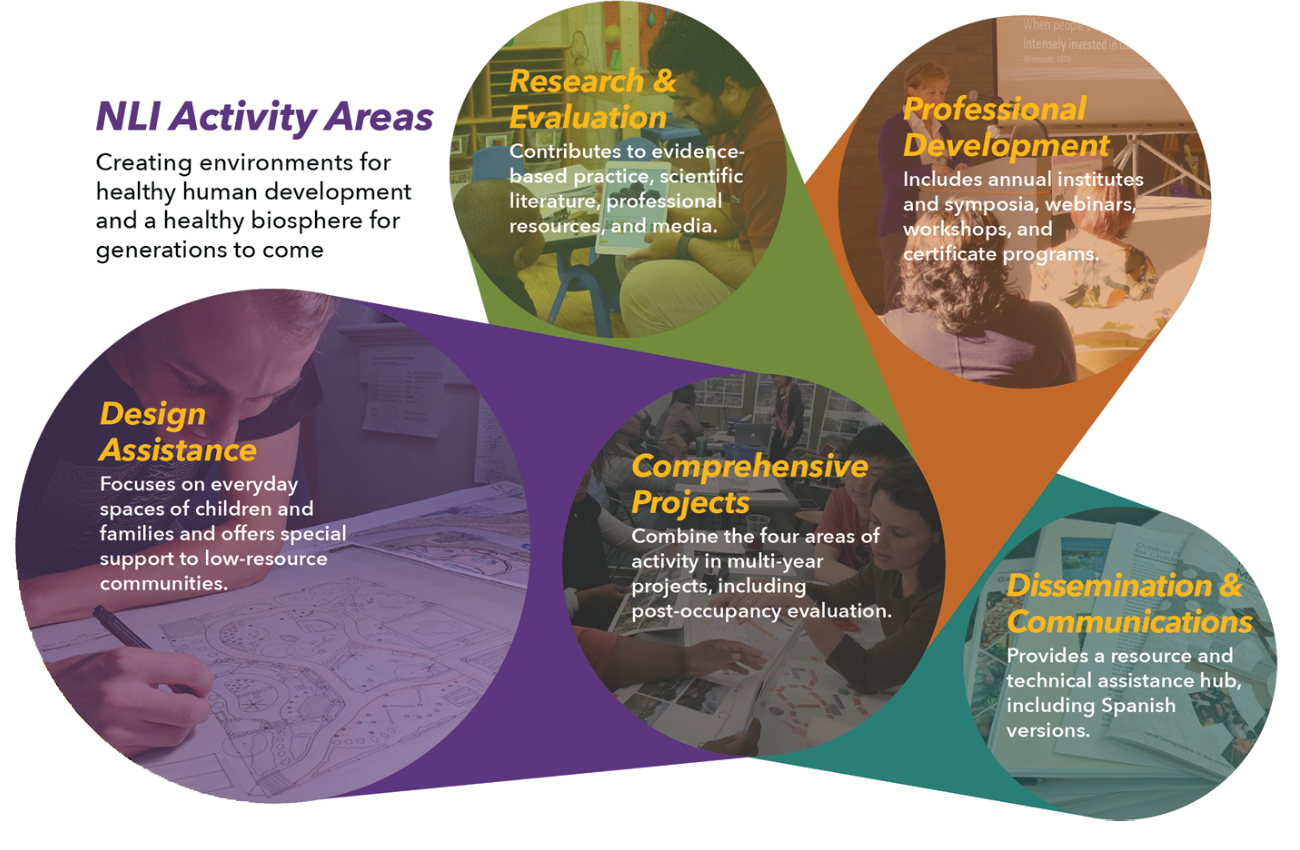
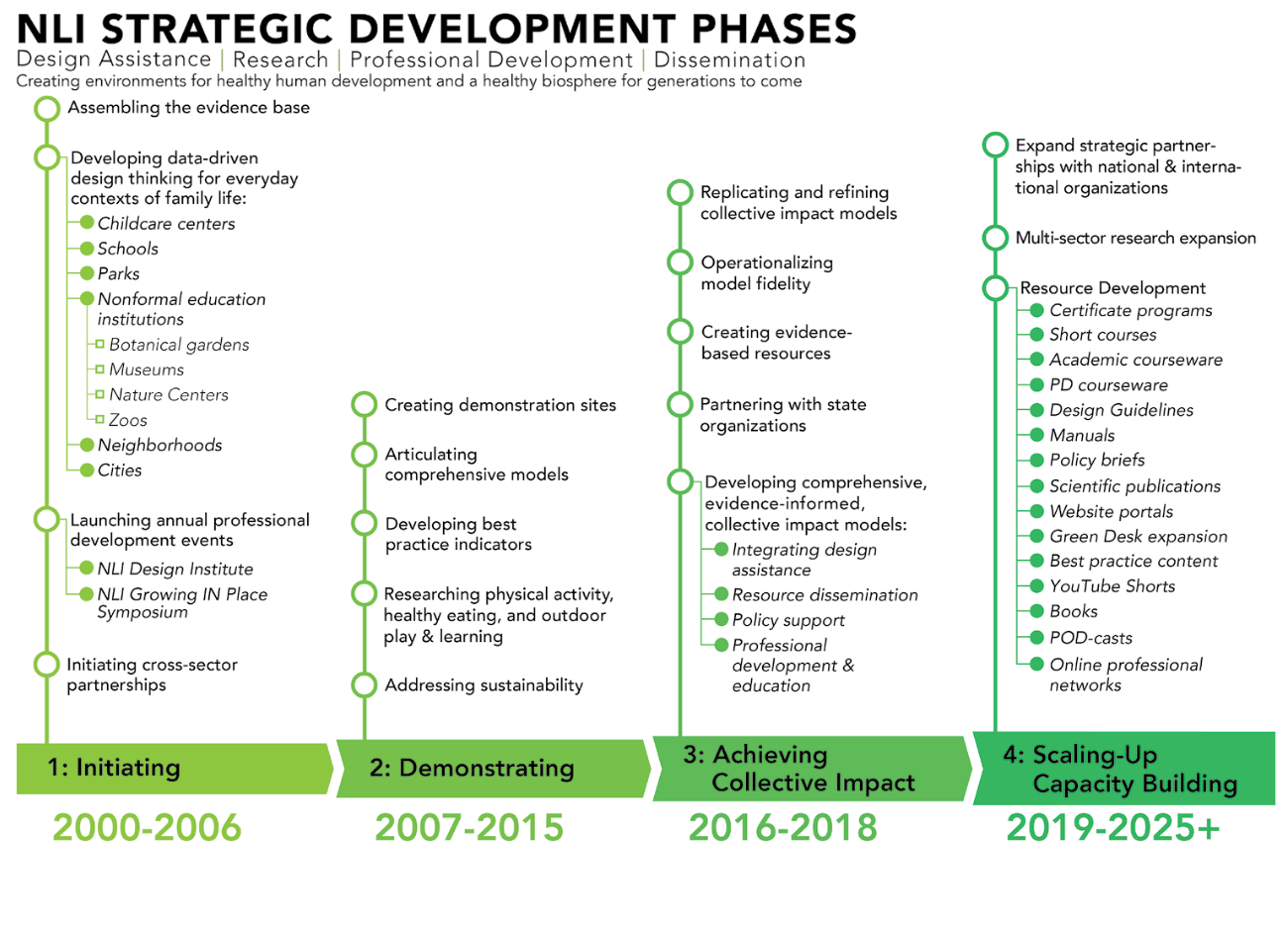
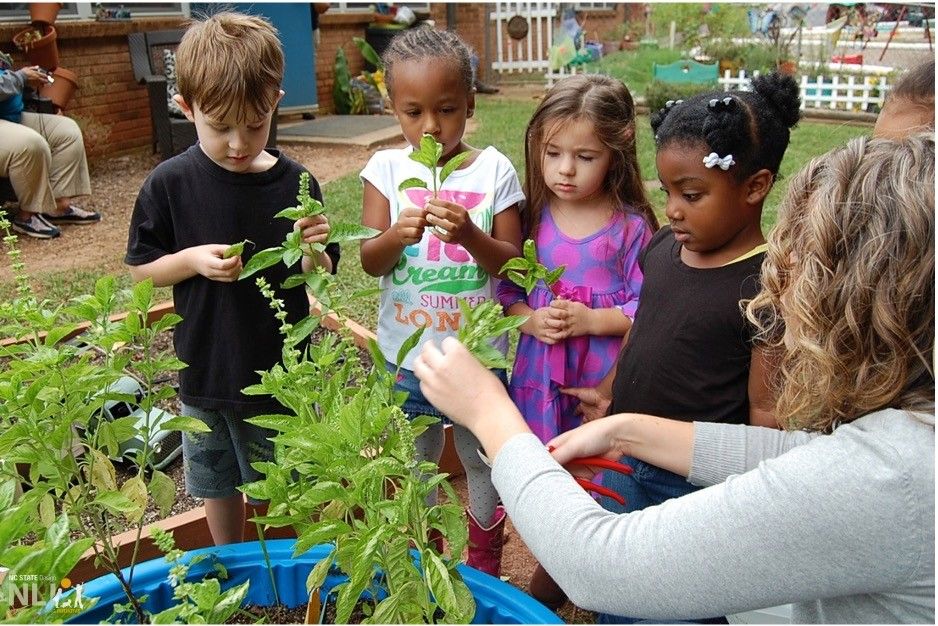
NLI’s social-ecological model places childhood and family development at the center of community and governmental engagement aimed at conserving and regenerating biodiverse, inclusive, equitable, healthy urbanization.